
Oberon Uranus' moon Dataset Science On a Sphere
One of the moons of Uranus, Oberon was discovered telescopically by William Herschel in 1789, seven years after his discovery of Uranus. Oberon orbits Uranus in approximately 13.5 days at a distance of 583 400 km; it is the outermost of the Uranian moons. It has a diameter of 1523 km and a mass of 30.3 × 10 20 km, making it the second largest.
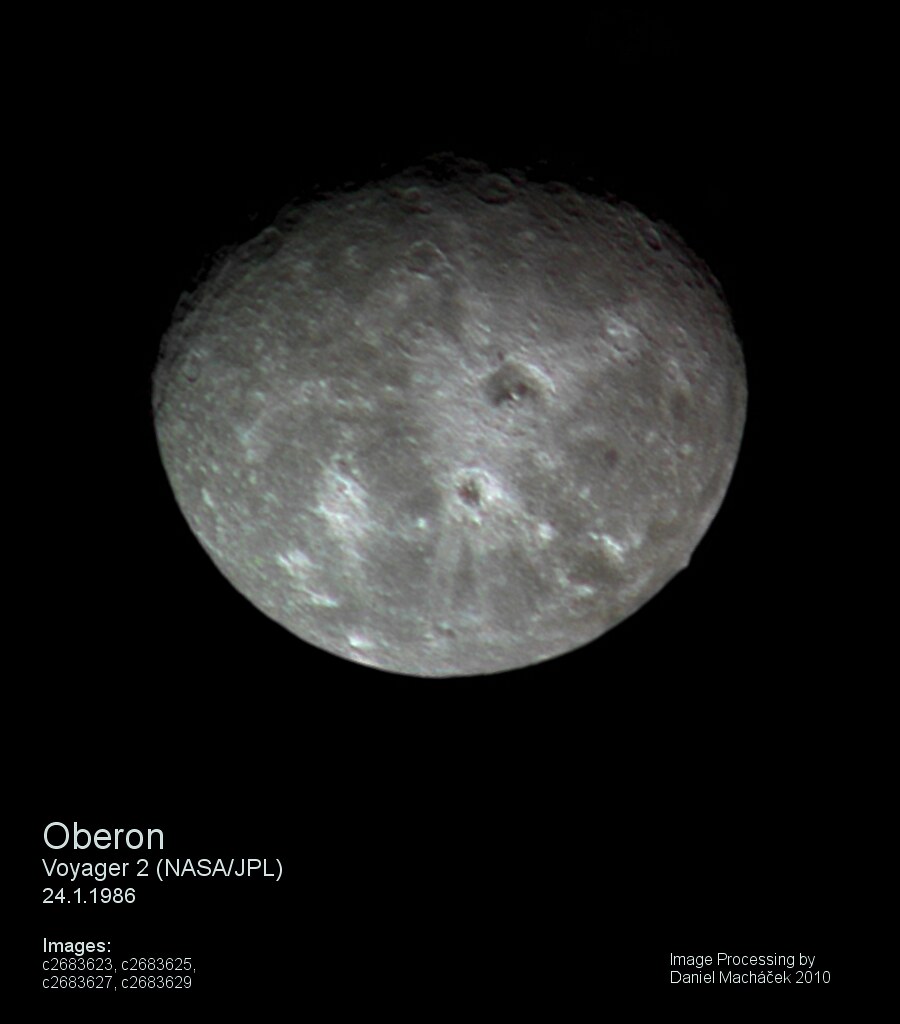
Uranian moon Oberon from Voyager 2 Credit NASA / JPL / Da… Flickr
It is believed that it is remained stable from the days its formation. The radius of Oberon is about 763 km and has a surface area of 7.2 million km. The density of Oberon is about 1.63 g/cm3 and has a surface gravity of about 0.348 m/s2. The temperature in the moon varies between 70 and 80 degrees Kelvin.

Titania a Oberon královský pár na oběžné dráze Uranu Blog iDNES.cz
Oberon /'o.be.ron/, denumit și Uranus IV, este cel mai exterior satelit major al planetei Uranus.Este al doilea cel mai mare și al doilea ca masă dintre sateliții uranieni și al nouălea cel mai masiv satelit din Sistemul Solar.Descoperit de William Herschel în 1787, Oberon poartă numele miticului rege al zânelor care apare ca personaj în Visul unei nopți de vară a lui Shakespeare.
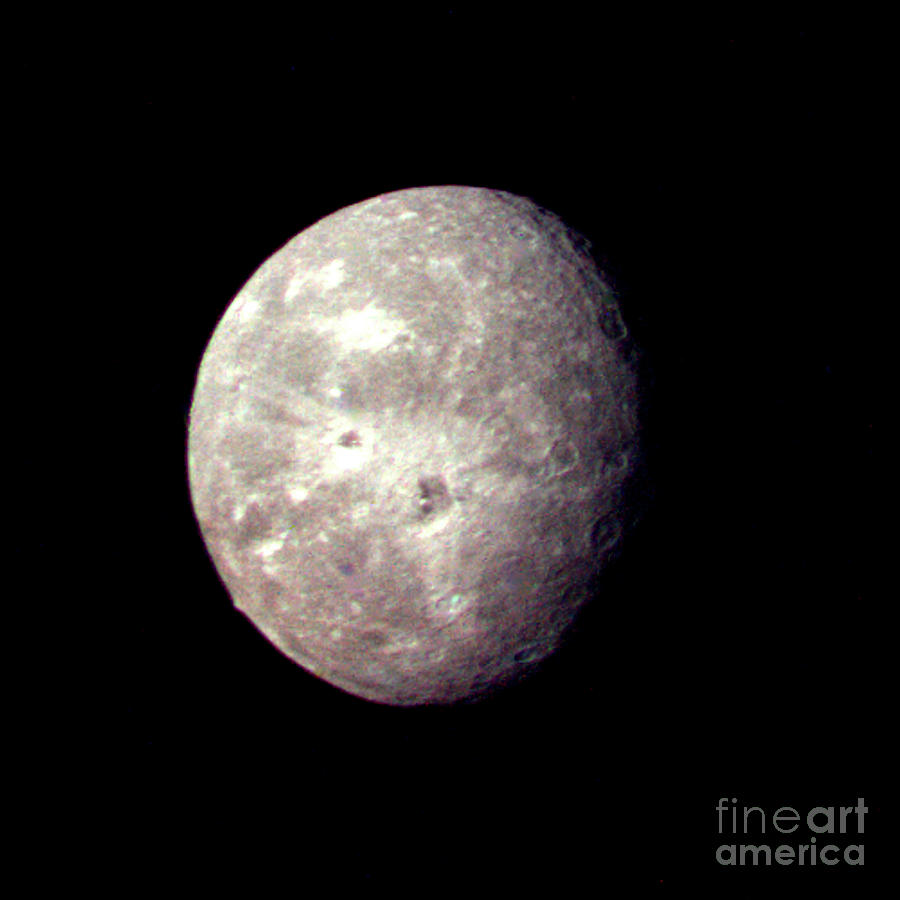
Uranus's Moon Oberon Photograph by Nasa/science Photo Library
The UK government is pushing ahead with its plans for a cluster of military radar satellites, placing a design study with Airbus. Project Oberon, as it's known, has been in discussion for a while.
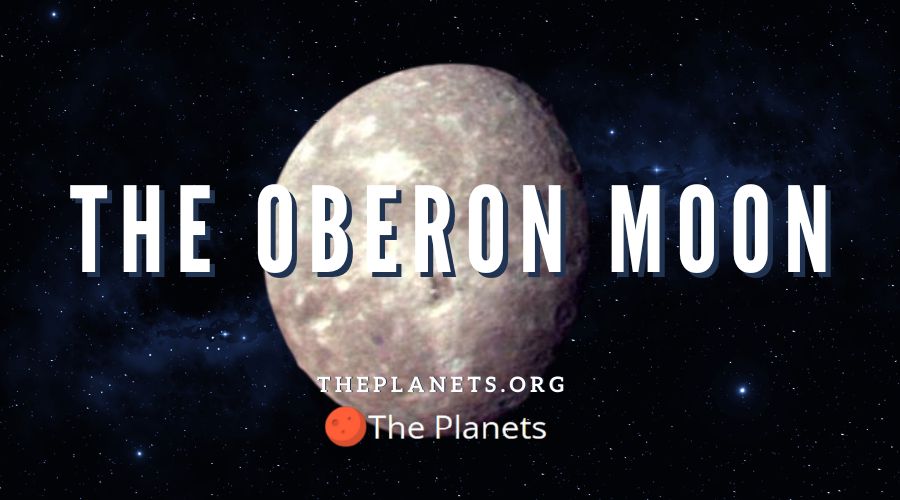
The Oberon Moon Key Facts and More The
Oberon, outermost of the five major moons of Uranus and the second largest of the group. Oberon was discovered in 1787 by the English astronomer William Herschel, who had found Uranus in 1781; it was named by William's son, John Herschel, for a character in William Shakespeare's play A Midsummer Night's Dream.. The mean distance of Oberon from the centre of Uranus is about 582,600 km.

Oberon Satellite Uranus Oberon Satellite 3d Stock Illustration 2232793489 Shutterstock
Oberon / ˈ oʊ b ər ɒ n /, also designated Uranus IV, is the outermost major moon of the planet Uranus.It is the second-largest, with a surface area that is comparable to the area of Australia, and second most massive of the Uranian moons, and the tenth most massive moon in the Solar System.Discovered by William Herschel in 1787, Oberon is named after the mythical king of the fairies who.

Satellite Oberon or Uranus IV, Moon of Uranus, Rotating Stock Illustration Illustration of
moon of Uranus. regular moon. Named after. Oberon. Discoverer or inventor. William Herschel. Time of discovery or invention. 11 January 1787. Mass.
Oberon Voyager 2
London, 11 September 2019 - Airbus has won a design study from the UK's Defence Science and Technology Laboratory (Dstl) to develop the technologies for a cluster of ultra-high-resolution Synthetic Aperture Radar (SAR) satellites for the UK Ministry of Defence (MOD). The satellites will also have the ability to collect radio frequency (RF.
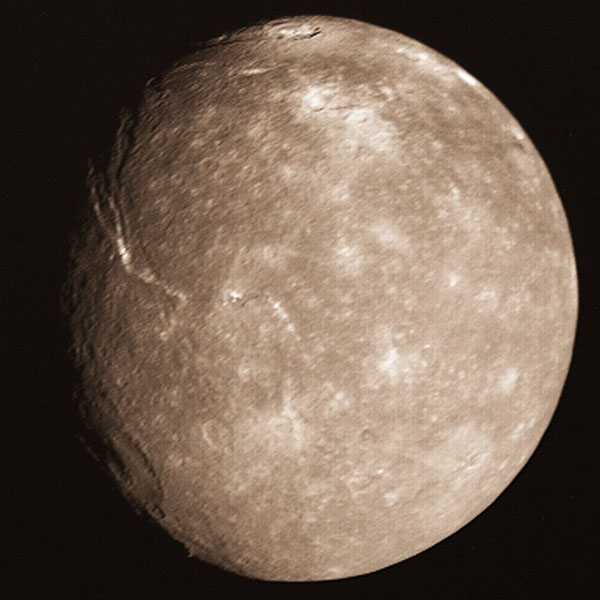
Shubham Singh (Universe) Oberon (Uranus' Moon) (Important Facts) {Part47}
Oberón o Urano IV es el más exterior de los satélites principales del planeta Urano. Es el segundo más grande y masivo de Urano y el noveno más masivo del sistema solar. Descubierto por William Herschel el 11 de enero de 1787, recibe su nombre de Oberón el rey de las Hadas de la obra de William Shakespeare, El sueño de una noche de verano.

Oberon, Moon of Uranus Pictures Getty Images
Oberon /ˈoʊbərɒn/, also designated Uranus IV, is the outermost major moon of the planet Uranus. It is the second-largest and second most massive of the Uranian moons, and the ninth most massive moon in the Solar System. Discovered by William Herschel in 1787, Oberon is named after the mythical king of the fairies who appears as a character in Shakespeare's A Midsummer Night's Dream. Its.
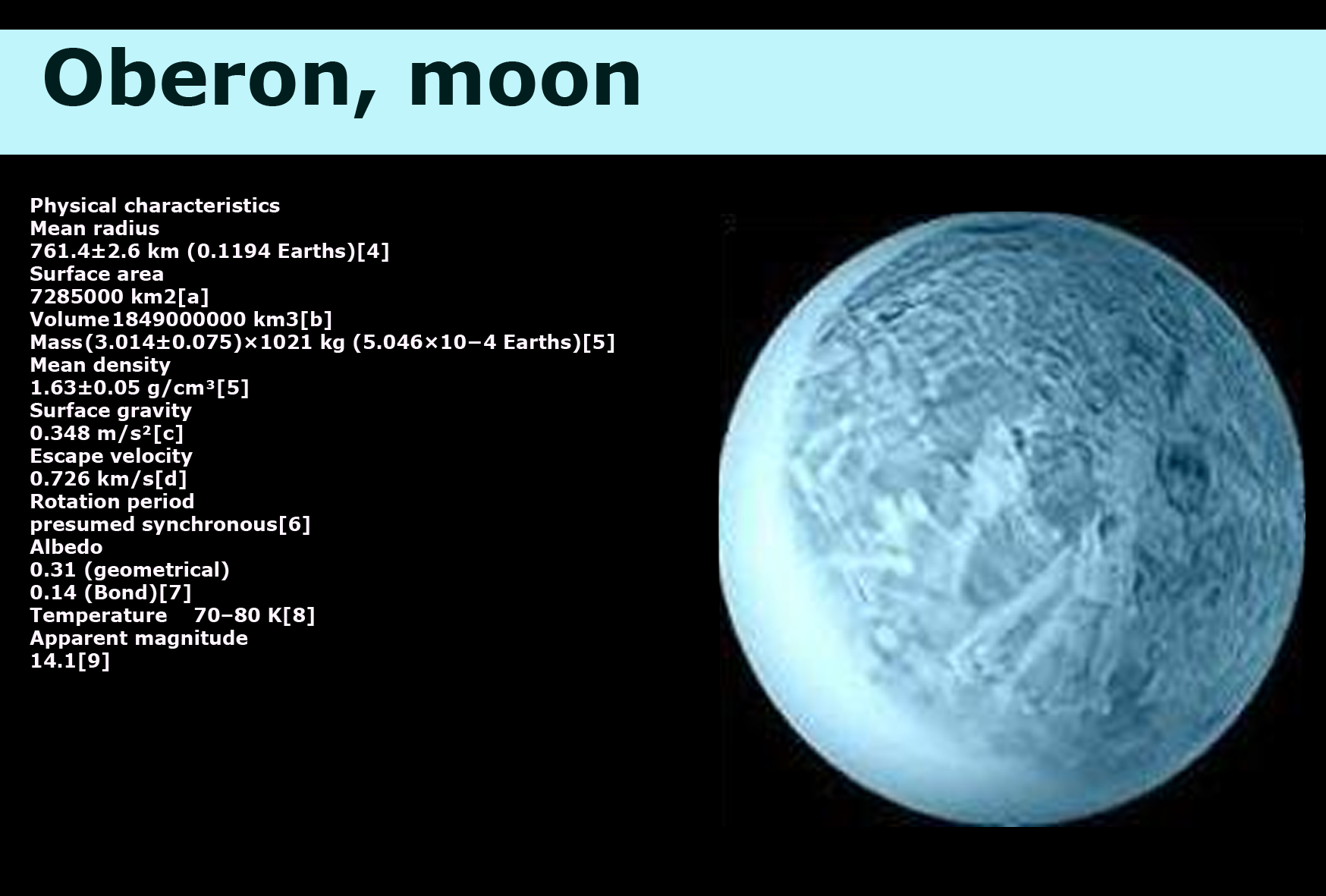
Image Oberon moon.png Wiki Fandom powered by Wikia
Credit: Airbus. LONDON—The UK defense ministry has kicked off the contracting process for the Oberon synthetic aperture radar (SAR) satellites for its planned space-based intelligence.
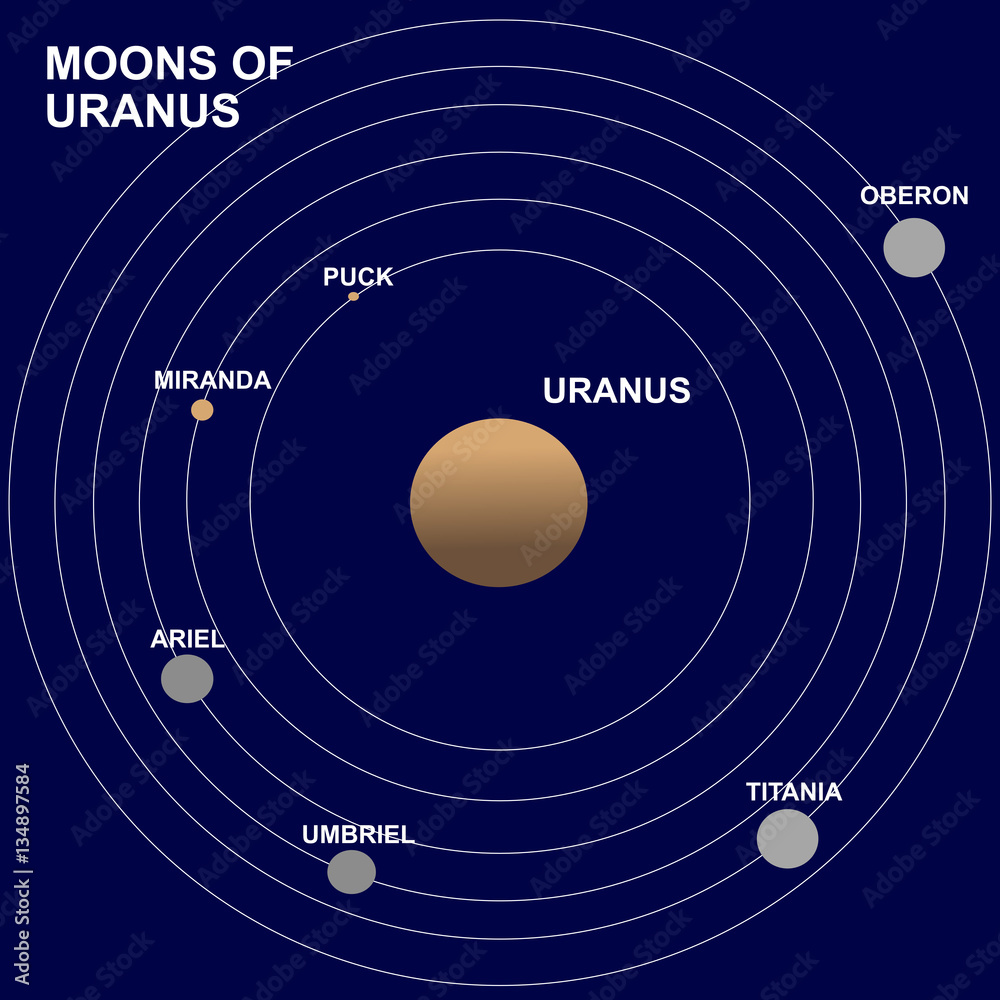
Moons or satellites of Uranus Puck, Miranda, Ariel, Umbriel, Oberon and Titania. Stock
0,24 [3] :193. Oberon ili Uran IV [4] je drugi najveći [1] satelit Urana. Među „glavnim" satelitima Urana, Oberon je najudaljeniji od matične planete. Otkrio ga je, zajedno sa susednom Titanijom, Vilhelm Heršel 1787. godine. [5] Sateliti su nazvani po kralju i kraljici vila iz Šekspirove komedije „ San letnje noći ".
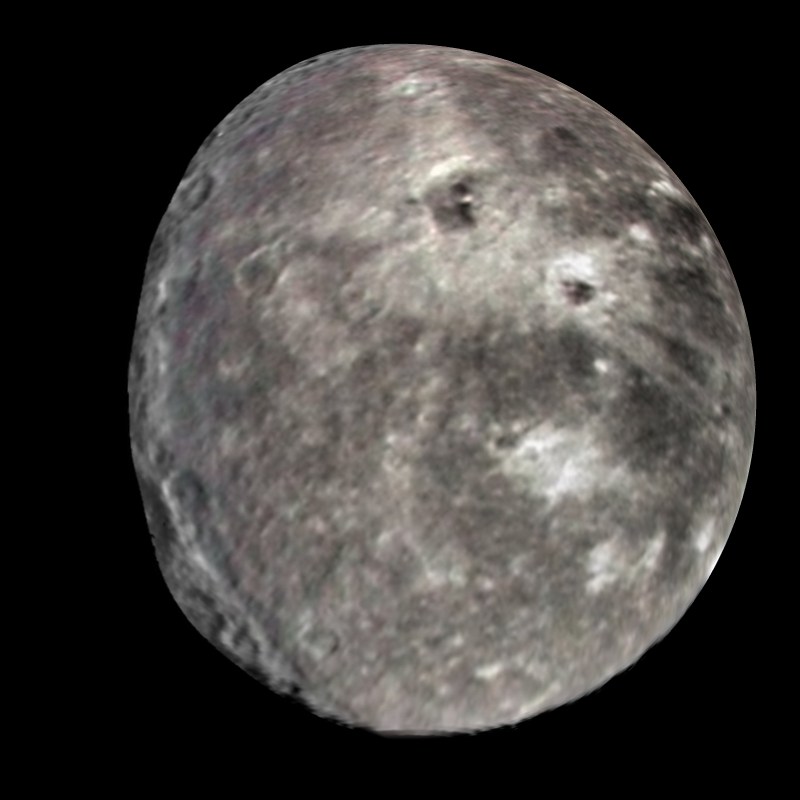
Oberon (moon) Alchetron, The Free Social Encyclopedia
The UK government is pushing ahead with its plans for a cluster of military radar satellites, placing a design study with Airbus. Project Oberon, as it's known, has been in discussion for a while.

Amazing Astronomy Largest moons
Oberon is a living museum, and for those with an esoteric interest, it may be a gateway into discovering information about the conception of life as we know it. Oberon is known to have one of the oldest surfaces of Uranus's twenty-seven moons. With a surface so cold and unperturbed, the moon has kept the conditions of the early solar system.

OberonXL and OberonXLE PolarOrbiting Satellite Tracking and Reception Earth Sciences
Brexit Britain is creating its own network of surveillance satellites. If the UK leaves the EU it is planning on dropping support for the Galileo space project. A new cluster of satellites, dubbed.
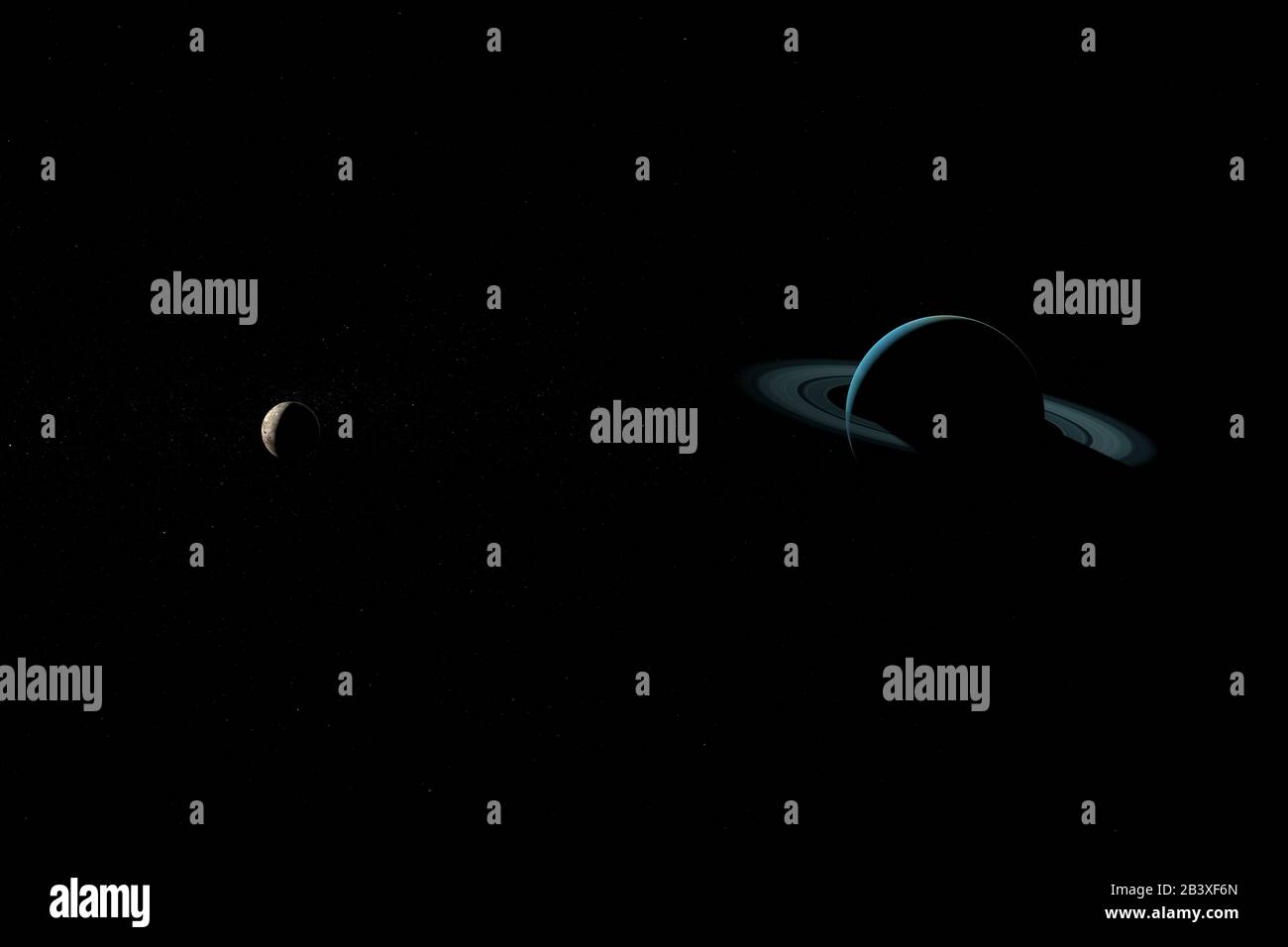
Satellite Oberon and Uranus in the outer space. 3d render Stock Photo Alamy
Oberon (satellite) Oberon or Uranus IV is the outermost of the main satellites of the planet Uranus. It is the second largest and most massive in Uranus and the ninth most massive in the solar system. Discovered by William Herschel on January 11, 1787, Oberon is named after a character, the King of the Fairies, from William Shakespeare's play A Midsummer Night's Dream.